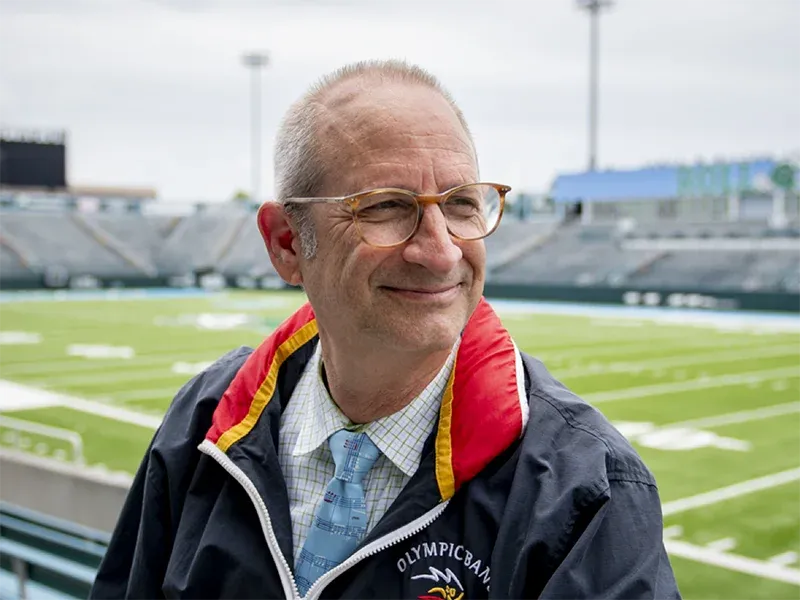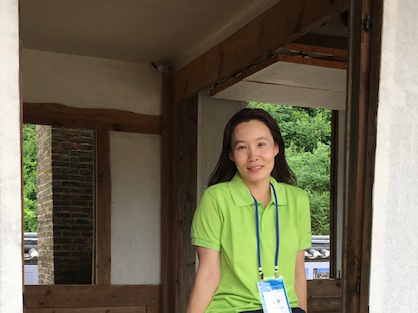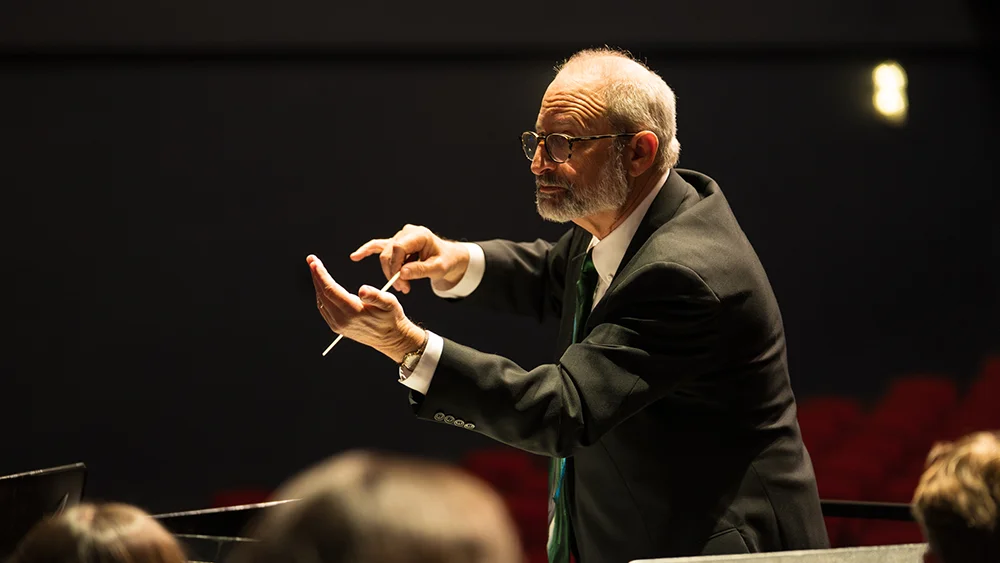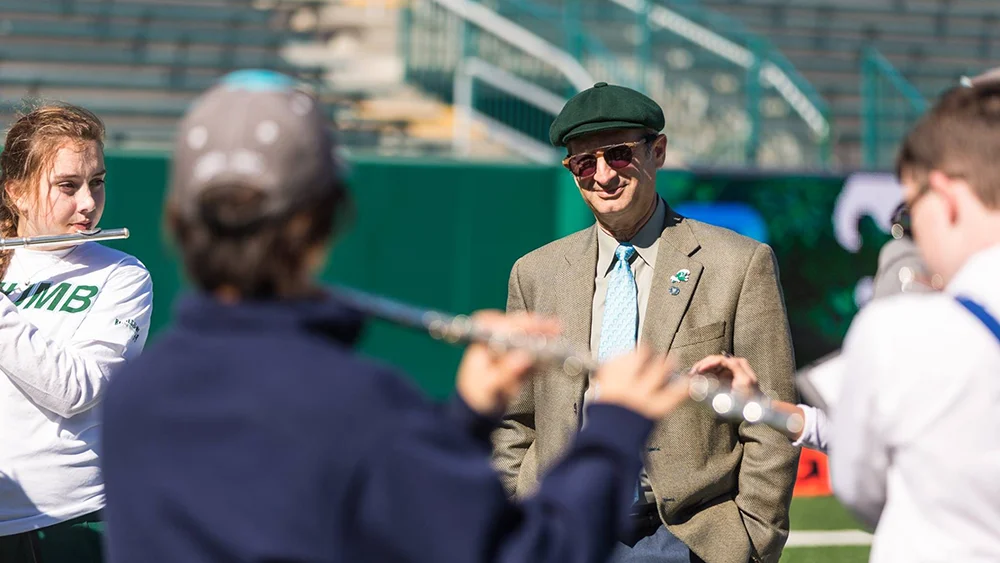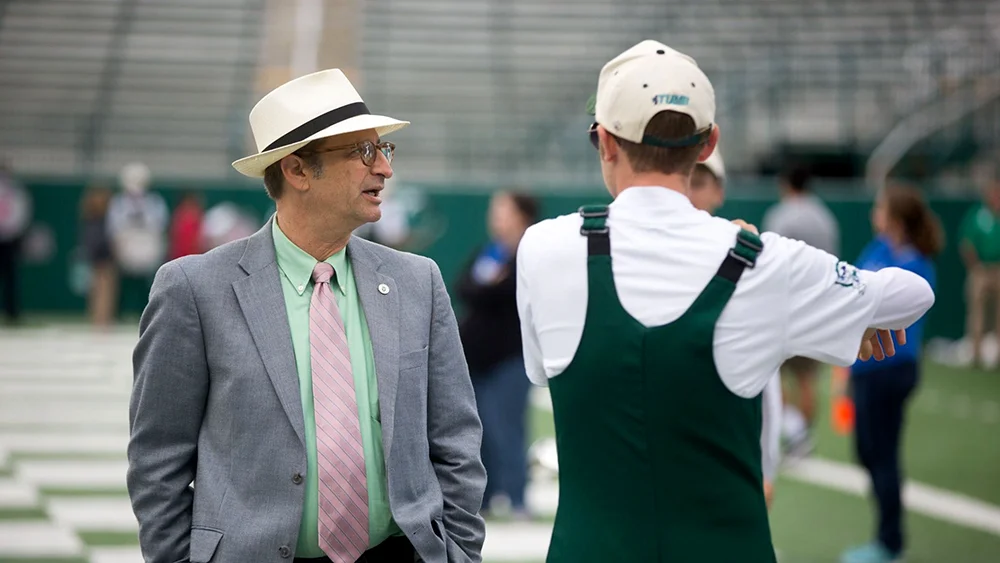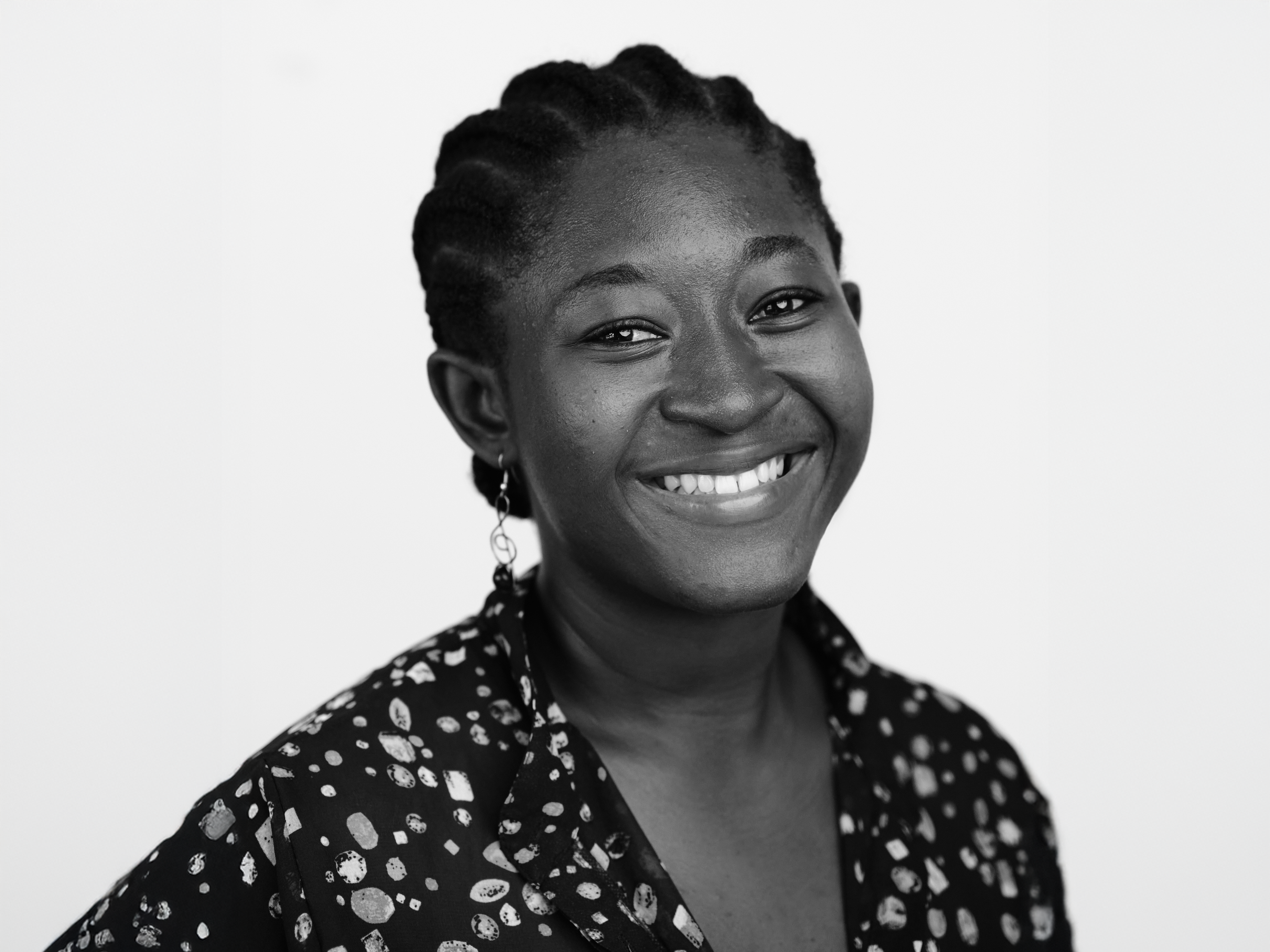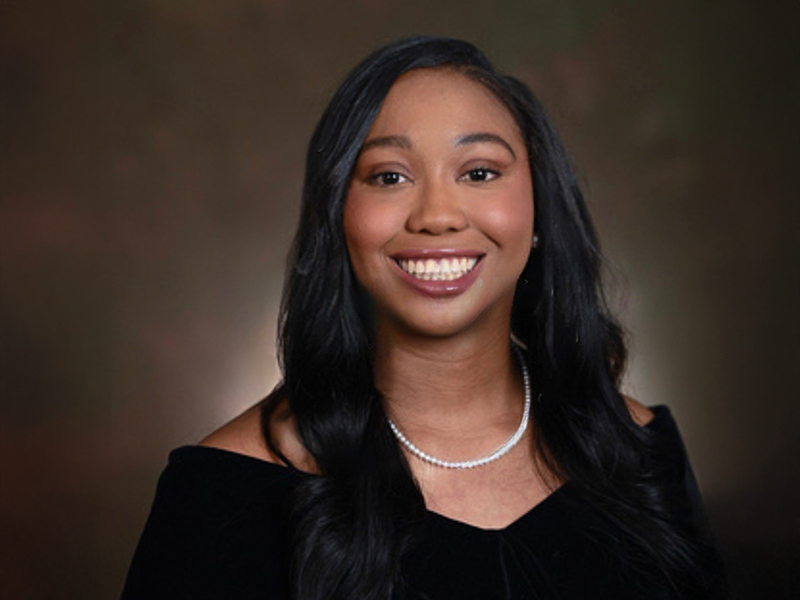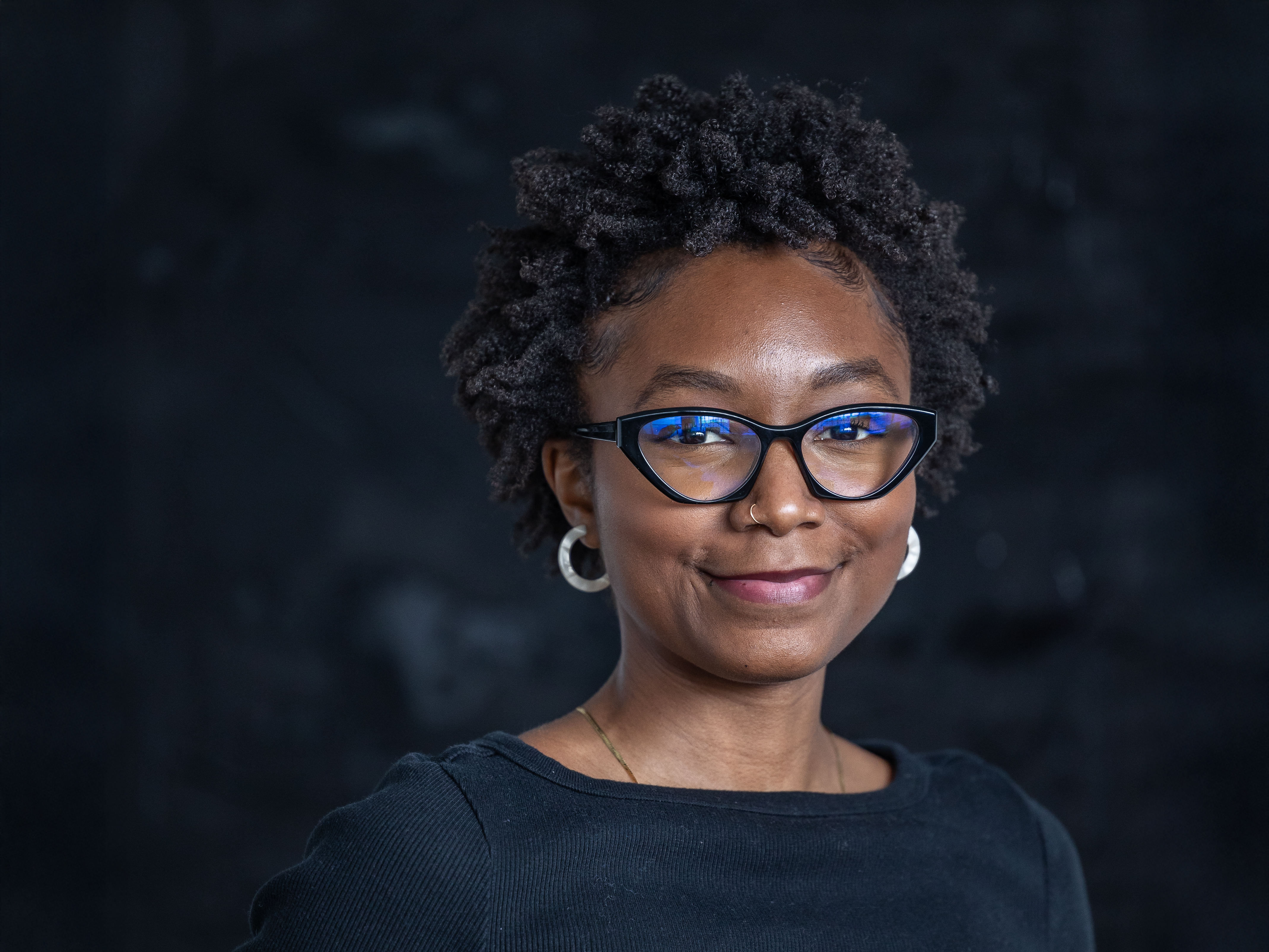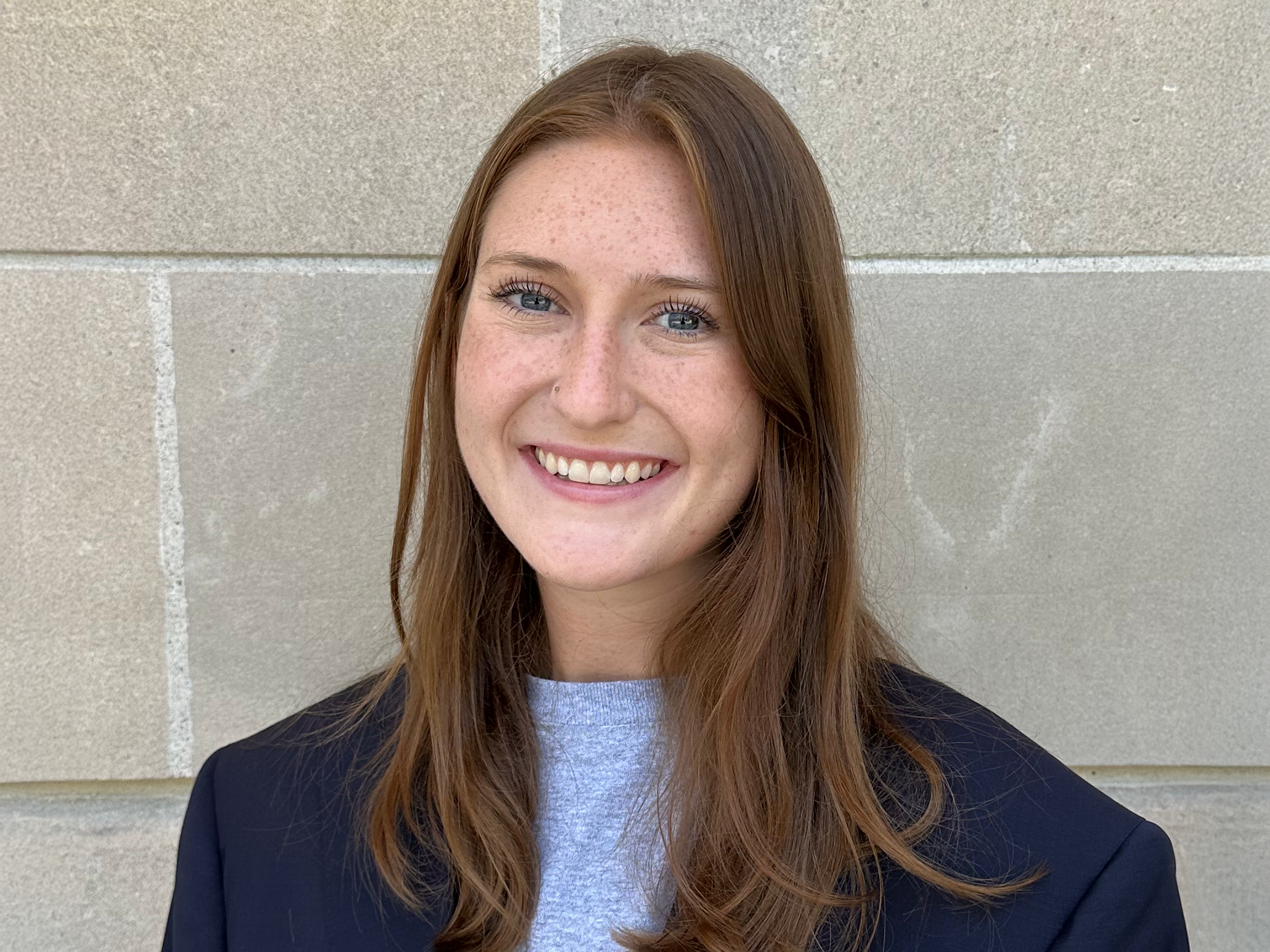Tulane University Celebrates the Retirement of Director of Bands Barry Spanier
After 21 years of visionary leadership, Spanier prepares to take his final bow
This fall marks the end of an era at Tulane University as Barry Spanier, the longtime Director of Bands, prepares for his final season leading the Tulane University Marching Band (TUMB). Spanier, who joined the university in 2004 to revive a marching band program that had lain dormant for decades, will retire at the conclusion of the 2025 football season — his 21st year at the helm.
When Spanier arrived on campus, Tulane’s marching band existed only as a distant memory from the Tulane Stadium era. With a wealth of experience developing musical ensembles from the ground up — including producing music for Olympic ceremonies, serving as associate director of the famed University of Southern California Trojan Marching Band, and creating orchestras and bands at New York University and abroad — Spanier saw Tulane as “a magical opportunity.” He accepted the task of forming a band from scratch, envisioning not only a musical ensemble, but a lasting symbol of Tulane pride and New Orleans spirit.
That vision became a reality in Fall 2005. Even after Hurricane Katrina struck during the inaugural band camp, Spanier remained resolute. He gathered displaced students to perform at Tulane’s first post-Katrina football game in Houston. In January 2006, TUMB began preparing for Carnival — the band’s official New Orleans debut.
Today, TUMB — now over 100 members strong — is the largest in the institution’s history and one of the only college marching bands in the nation that rehearses and performs during both the fall and spring semesters. Under Spanier’s leadership, TUMB has become an integral part of Tulane’s identity: performing at every home football game, leading the university’s presence in dozens of Mardi Gras parades, and representing Tulane on international and national stages — from the 2020 Dubai World Expo to appearances on American Idol, Wheel of Fortune, Fox & Friends, MTV, and NCIS: New Orleans.
“It has been a pleasure to watch Barry serve as the heart and metronome of Tulane Bands,” said School of Liberal Arts Dean Brian T. Edwards. “He has embraced the challenge of developing a vision for the bands in one of the greatest music cities of the world, bringing together Tulane and New Orleans traditions in halftime shows, participation in Mardi Gras parades, and the pep bands and brass bands that entertain and engage the entire Tulane community. Under his leadership, the Tulane Marching Band has become beloved by so many Tulanians.”
Spanier’s impact on music education extends far beyond the gridiron. Throughout his career, he has led and produced music for some of the world’s most prominent cultural events, including two Olympic Games, a World Exposition, and major international festivals. At the Sydney 2000 Olympics, he directed what remains the largest marching band in history — 2,000 musicians from 23 nations performing for the opening ceremonies. In 1984, he coordinated all venue bands for the Los Angeles Games. As director of bands at World Expo ’88 in Brisbane, Australia, he introduced a full-scale marching band program to a country with little tradition of the form.
Yet among his most enduring legacies will be the one he leaves at Tulane. Over two decades, Spanier’s dedication has helped redefine what a college marching band can be — one that is welcoming, student-centered, community-engaged, and distinctly New Orleanian.
“Not many in the collegiate band and music education profession can lay claim to starting a Division 1 university band program,” said Dylan Parrilla-Koester, assistant director of Tulane Bands. “Barry’s vision and leadership led to the genesis of not just a music ensemble, but a community that spans generations of Tulanians.”
In honor of his retirement and the 20th anniversary of TUMB’s re-establishment, Tulane will celebrate Spanier throughout the 2025 season, including a special halftime performance and an alumni band reunion at Tulane’s homecoming in November.
Parilla-Koester continued, “For hundreds of current students and alumni, TUMB remains the centerpiece of their connection to Tulane. Most university events — from convocation, to homecoming, to Carnival — are defined by the band. His impact can’t be overstated.”
